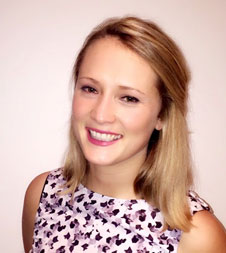

Courtney McLauchlan
A mix of biochemistry and marketing management provided the pathway for Courtney McLauchlan's next step after graduation.
“I have always been interested in developing science like genetic modification, drug development, and the human metabolism, and I really enjoyed BIOC 192, so I decided to undertake a biochemistry degree. I then changed to a double degree in biochemistry and marketing,” Courtney says.
She really enjoyed how biochemistry is at the cutting edge of innovation and how it was a good fit with other disciplines.
“I absolutely loved learning how biochemistry could work with other disciplines, and how it is right on the forefront of scientific innovation - algae being used to clean up oil spills, trying to harness the power of photosynthesis for electricity,” she explains.
Maybe it is this understanding of collaboration that prompted Courtney to apply for Fonterra's graduate programme.
“Fonterra have both a Business and Technical (science, engineering etc.) graduate programme and since I had both a Biochemistry and a Marketing degree, I applied for both, and I was lucky enough to be accepted into the Business graduate programme,” Courtney says.
Courtney now works as a Ventures Manager at Fonterra within a new team that is responsible for looking for and developing new innovations.
While her role is very business orientated her biochemistry skills are used on a daily basis.
“I have been able to use my Biochemistry degree, but more in the way you are taught to think, to run experiments and to prove/disprove assumptions and hypotheses. Except my team do this in a business context,” she explains.
“I help to run 'experiments' for business ideas and projects that we have. We have a BUILD-MEASURE-LEARN cycle, and we can kill a project at any time if we don't believe it has potential or the right product-market fit.
This is definitely where I think my Biochemistry degrees has helped with the mind set and analytical thinking you need to run experiments. It's interesting applying this type of thinking to a business environment, it's very different to running experiments in a lab,” she says.
